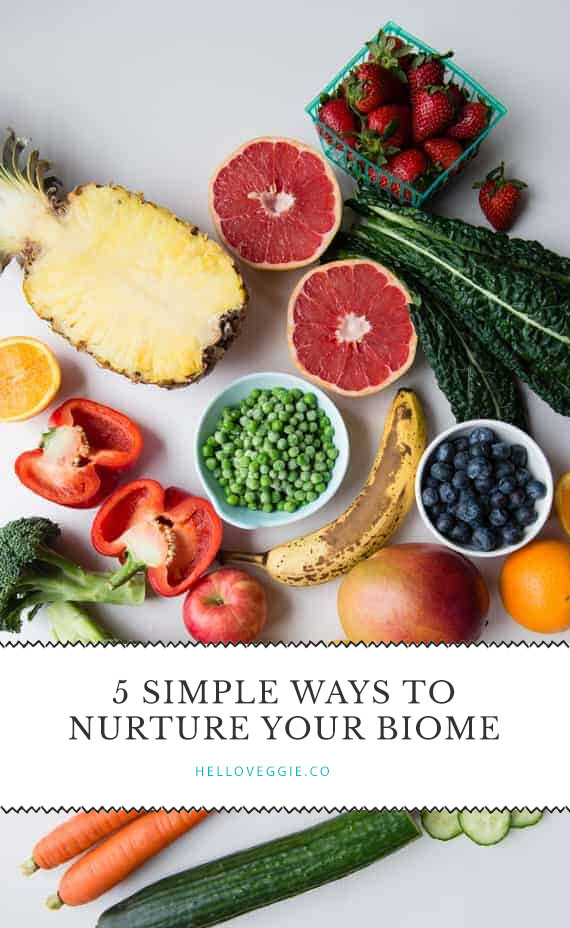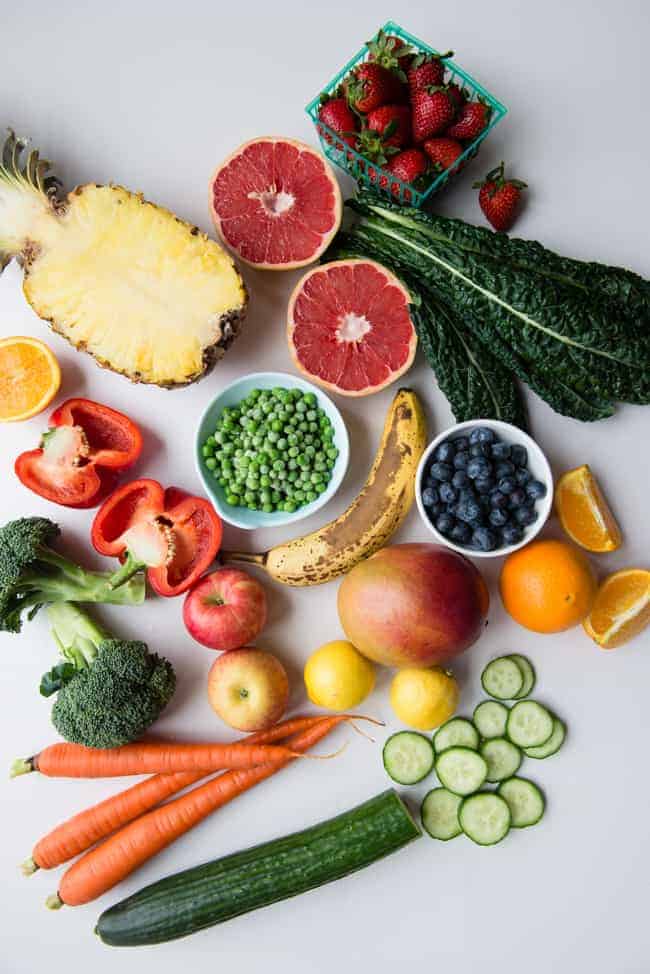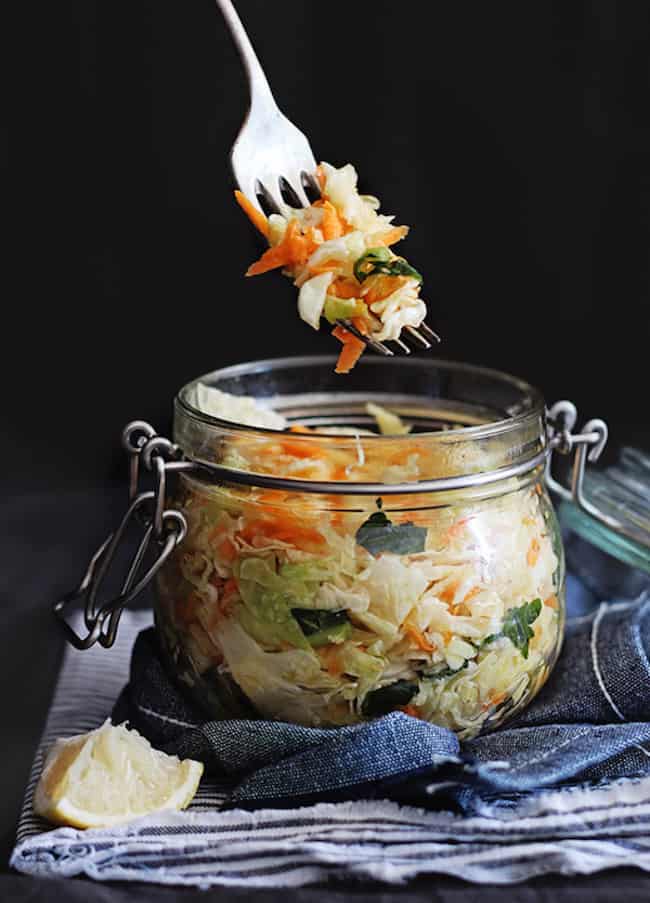
A healthy gut contains many bacteria. By “many” I mean about 100 trillion bacteria, both good and bad. So long as the good outranks the bad, we benefit every day from their presence. These bacteria support digestion, help regulate our metabolisms, and do the work of digesting what we cannot to extract important nutrients, in addition to many other chores that we’re only just beginning to understand.
Collectively, this mixture of bacteria taking up residence in your gut is what’s referred to as your microbiome, and it deserves to be nurtured!
Many of us pay attention to our gut bacteria during times of illness or stress, as we tend to suffer the consequences of the biome getting out of whack. An overgrowth of bad bacteria, a colony wipe-out of good bacteria from antibiotic use, or too much bacteria (good or bad) moving too high up the digestive tract can act to send us into varying degrees of gastric distress.
And while it’s certainly important to nurture your biome during periods of illness or stress, given the important work it does, it’s beneficial for both us and our bacteria to take small steps to nurture it on a daily basis.
5 ways to nurture your biome

1. Avoid refined foods
Eating a lot of simple carbohydrates such as refined sugars, breads, and cereals may be a quick fix for your hunger, but it doesn’t do anything to feed the beneficial bacteria in your gut. On the contrary, these simple carbohydrates may contribute to inflammation and fuel unhealthy bacteria, which we want to avoid.
A simple switch like swapping your morning bagel for whole-grain overnight oats or a green smoothie, or a bowl of organic whole-milk yogurt topped with fruit would be beneficial.
And remember, just like you, your gut bacteria love variety. Rather than eating the same thing day after day, switch up your diet with whole grains, fruits, and vegetables plus healthy fats and proteins.
2. Eat Fermented Foods
Fermented foods have been on the rise in recent years, and with good reason! Naturally fermented foods such as sauerkraut, kimchi, and kefir are not only easy to digest, but they provide a massive dose of gut-friendly probiotic bacteria. A tablespoon of liquid from a jar of natural sauerkraut may contain even more live bacteria than a probiotic supplement!
Fermented foods also tend to contain more bioavailable nutrients than their non-fermented cousins. This is notable in tempeh, which is more nutrient rich and easier to digest than non-fermented soybeans or tofu, and also in cabbage, which becomes even more nutritious when fermented to sauerkraut or kimchi.

3. Eat Prebiotics
Prebiotics are roughage that can only be eaten by beneficial bacteria. If that sounds unpleasant, let me assure you that it’s not!
That roughage comes in the form of indigestible starches that we can’t break down in our upper digestive tracts, but that the bacteria go to town on in our lower intestine. Foods such as artichoke, asparagus, endive, green bananas, Jerusalem artichoke, garlic, onion, leeks, parsnips, whole grains such as wheat, rye, and oats are great sources of prebiotics.
One thing to note is that while prebiotics tend to be more suitable for daily use than probiotics, to gain the benefits they offer, good bacteria must already be present in the gut.
If you’re not accustomed to a lot of roughage in your diet, I recommend you introduce it slowly. Adding too much at once will overwhelm the bacteria in your gut and lead to gastric distress. Add a little bit more every day, and give your system a chance to adjust.
4. Avoid unnecessary antibiotics
This one can be a bit tricky as there is certainly a time and a place for antibiotics. At times there are no other options and there is no doubt that they can be lifesaving and important.
However, antibiotics are vastly overprescribed and we tend to reach for them as a quick fix, which, among other problems like creating antibiotic-resistant strains of bacteria, can throw your gut bacteria out of balance.
If you’re fighting a virus like a common cold, you likely don’t need antibiotics. You can always chat with your doctor about whether there is an alternative treatment, and if not, what the shortest treatment course available is.

5. Avoid stress
In our modern society and today’s fast paced world, this can be easier said than done. But whether it’s work stress, personal stress, or even lack of sleep, all stress can be hard on your system.
The gut-brain connection is a hot area of research right now and there’s much we don’t know, but we do know that stress interferes with digestion, contributes to inflammation, and can support yeast overgrowth, all of which can damage the delicate balance of beneficial bacteria in your gut.
Working to find ways to manage stress, including eating a balanced, healthy diet and getting enough sleep, can do wonders to nurture your gut biome.
2